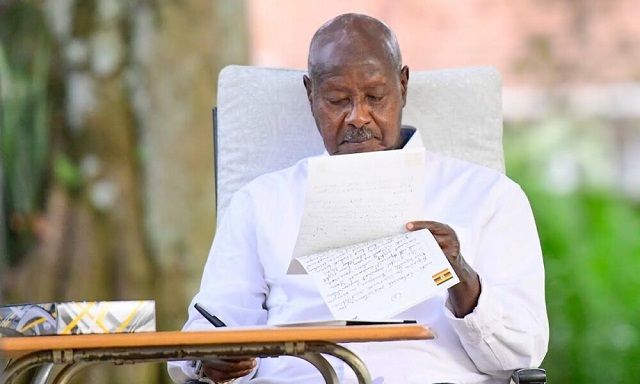
COMMENT | Gertrude Kamya Othieno | Your Excellency, President Museveni, I write to you as a Ugandan who shares your vision of a united, inclusive, and forward-looking Uganda. Throughout your leadership, you have addressed the scourge of sectarianism, reminding us that divisions rooted in region and tribe hold us back from realizing our full potential. In addressing the nation last night, you rightly emphasised that sectarianism remains a barrier to true unity, encouraging us to move beyond these divisions. Your words resonate powerfully, yet I feel compelled to share some reflections on how sectarianism might still be manifesting, albeit subtly, in ways that impact ordinary Ugandans’ sense of belonging.
Sectarianism, as you have observed, may not always be explicit. It can present itself in the patterns we observe within employment, economic opportunity, and social spaces. In our capital city, Kampala, a diverse microcosm of Uganda, this reality is especially visible. For instance, a close look at the top ranks in government offices reveals a significant representation of individuals from the Western region, a pattern that, even if unintended, can create a perception of preferentialism. This perception risks leaving citizens from other regions feeling overlooked, regardless of their contributions to our shared progress.
Another observation lies in the socio-economic roles often associated with particular regions. While individuals from Northern and Eastern Uganda have been prominent in security-related roles, Baganda, as our largest ethnic group, are highly represented in services like transport and trade. These are critical roles that fuel our economy, yet this distribution hints at underlying inequalities, suggesting an implicit socio-economic hierarchy. Many Ugandans, particularly young people, find this reality demotivating and at odds with the values of inclusivity that you, Your Excellency, have championed.
In the age of digital communication, social media influencers and bloggers play a significant role in shaping public discourse. Among these vocal figures, some have tended to use divisive language, occasionally skewing towards polarising narratives. These influencers, many of whom are from the central region, could indeed be influential in fostering unity if they adopt a more constructive approach. Their voices could amplify our shared goals, highlighting our common ground rather than reinforcing our differences.
Your Excellency, as you have urged us to seek unity, I believe that an authentic understanding of sectarianism requires us to look at these structural factors. Perhaps a series of unannounced visits to workplaces, local communities, and public spaces across regions could provide insight into how subtle dynamics of exclusivity may be affecting Ugandans. Your engagement would be a visible symbol of your commitment to eradicating sectarianism at every level, sparking renewed hope for a fairer Uganda.
To move towards a Uganda that genuinely values and represents all backgrounds, we must examine our institutions, societal structures, and even subtle everyday interactions. By doing so, we can transform our rhetoric on unity into lasting, practical change. This journey, challenging as it may be, would pave the way for a Uganda where each citizen feels equally valued and empowered, free from divisions that hold us back.
Lastly I wish to clarify that my reflections are not offered out of a sectarian motive but from a strong desire to see a Uganda that embraces and empowers all of its citizens. I am proud to be Ugandan by birth, socialisation, and marriage, and my commitment to inclusivity comes from a belief in a truly unified nation I am hopeful that these reflections will contribute positively to your ongoing efforts to promote unity in our country.
Thank you for your dedication to this cause, and for considering these reflections on behalf of all Ugandans.
Yours sincerely,
*****
 Gertrude Kamya Othieno | Political Sociologist in Social Development (Alumna – London School of Economics/Political Science) | Email – gkothieno@gmail.com
Gertrude Kamya Othieno | Political Sociologist in Social Development (Alumna – London School of Economics/Political Science) | Email – gkothieno@gmail.com
 The Independent Uganda: You get the Truth we Pay the Price
The Independent Uganda: You get the Truth we Pay the Price



